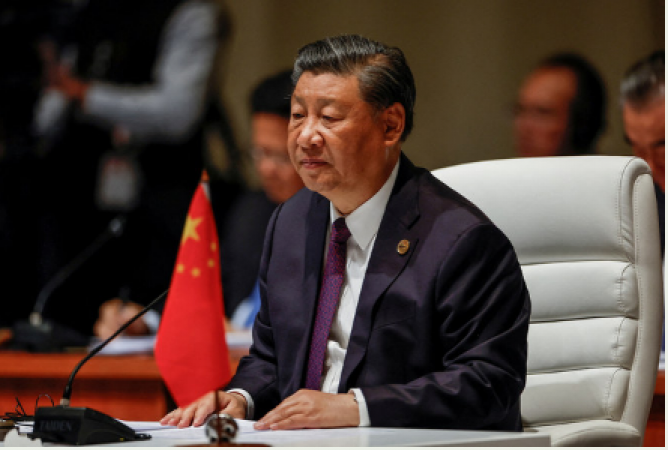
Chinese President Xi Jinping is expected to skip the forthcoming G20 summit scheduled to be held in New Delhi on September 9 and 10, according to sources familiar with the matter in both India and China, as reported by Reuters. The decision not to attend the summit is attributed to scheduling conflicts and other diplomatic factors.
The absence of President Xi at the G20 summit is significant on multiple fronts. It sends a diplomatic signal and could impact discussions on crucial global issues. Here, we delve into the reasons, implications, and broader context of President Xi's likely absence.
Reasons for President Xi's Absence
Also Read: First Lady Jill Biden Tests Positive for COVID-19; President Biden Tests Negative
Given the sensitive nature of these discussions and the diplomatic tensions between China and some Western nations, President Xi's participation could have added complexity to the summit.
Diplomatic Significance: President Xi's decision not to attend the G20 summit is seen as a diplomatic snub to India, the host country, and could indicate a lack of willingness to engage in discussions with Western leaders at this particular forum.
Impact on G20 Discussions: The absence of China's top leadership may influence the dynamics and outcomes of the G20 discussions. President Xi's participation would have been crucial in addressing global economic challenges and fostering cooperation on various fronts.
Tensions with the West: President Xi's absence further underscores the escalating tensions between China and the Western world, especially the United States and its allies. It highlights the challenges in finding common ground on pressing global issues.
Also Read: Indonesia Aims to Double Trade with UAE as New Trade Pact Takes Effect
Opportunity Lost: The G20 summit could have provided an opportunity for China and the United States, the world's two largest economies, to engage in meaningful dialogue and potentially ease tensions. President Xi's absence reduces the prospects for such interactions.
The G20, consisting of the world's 20 largest economies, serves as a critical platform for discussions on global economic and financial matters.
It plays a pivotal role in addressing issues such as trade, climate change, and international cooperation. However, the summit's agenda is often shaped by current global events, and the war in Ukraine has loomed large over the upcoming meeting.
China's decision not to send President Xi to the G20 summit raises questions about the forum's effectiveness in facilitating constructive dialogue among major world powers. It also underscores the challenges in addressing complex global issues amid diplomatic tensions.
While President Xi may not attend the summit in person, there remains the possibility of his participation through virtual means, allowing for some level of engagement on critical matters.
However, the absence of China's top leader in the physical gathering is a notable development in the context of global diplomacy.
Also Read: Niger's Junta-Appointed PM Engages in Ongoing Talks with ECOWAS Amid Sanctions
President Xi Jinping's likely absence from the G20 summit in India reflects both scheduling constraints and diplomatic considerations. It has diplomatic implications, particularly in the backdrop of rising tensions between China and the West.
The G20 summit, which was already facing challenges due to the Ukraine crisis, now faces additional complexity in addressing pressing global issues without the presence of China's top leadership.